Supplement to Monika Karmin’s Paper on Y Chromosome Bottleneck
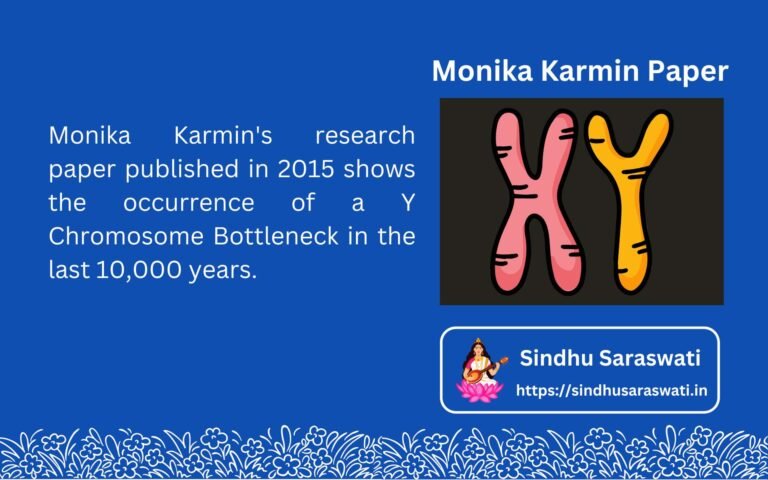
Monika Karmin's research paper published in 2015 shows the occurrence of a Y Chromosome Bottleneck in the last 10,000 years.

Monika Karmin's research paper published in 2015 shows the occurrence of a Y Chromosome Bottleneck in the last 10,000 years.
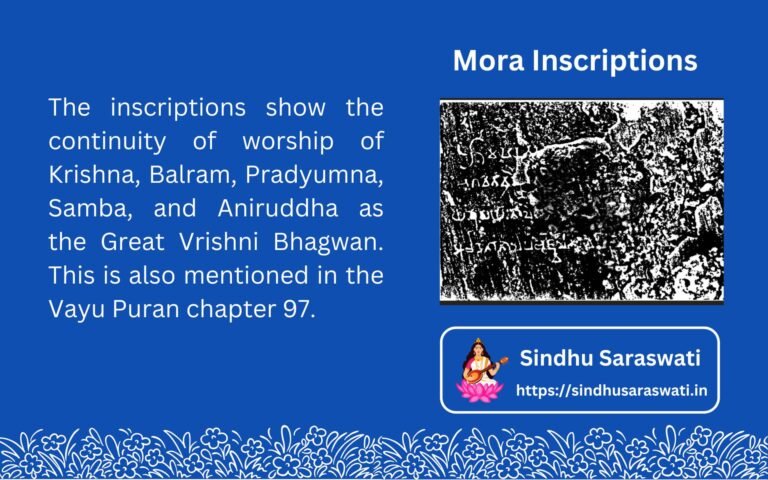
The Mora Well Inscriptions show the continuity of worship of the 5 Great Vrishnis in Greco Bactrian India (around 15 BCE).
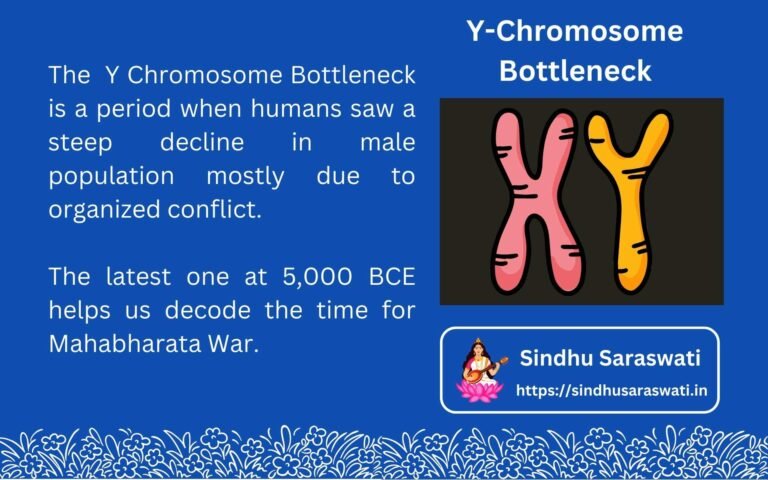
Two Y Chromosome Bottlenecks have been prominent in human history., the Mahabharat Bottleneck and the Toba Bottleneck.

Yes, the oldest civilization was indeed the Sindhu Saraswati civilization. The site of Bhirdana has been dated by the Archaeological Survey of India to 7570 BCE.

We have found multiple evidences of religious continuity throughout the Sindhu Saraswati civilization.

A 2500 years old ivory comb was discovered Kalibangan.
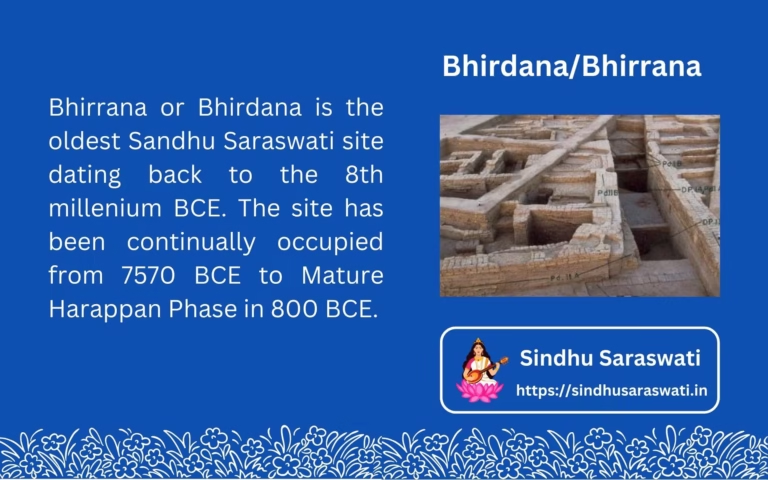
Bhirdana is the oldest archaeological site yet discovered among all Sindhu Saraswati archeological sites. It was inhabited from 7570 BCE to 800 BCE.

Sindhu Saraswati Civilization denotes the pre-historical and historical settlements that began in north western and northern part of the Indian subcontinent around the mid-8th millenium BCE.
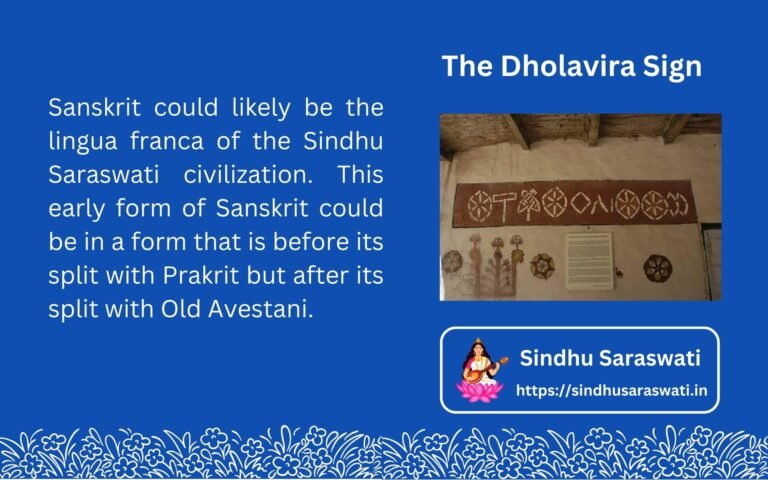
The Dholavira Signboard was probably in Sanskrit, which was Lingua Franca or Lingua Electi in the Ancient Sindhu Saraswati Civilization.
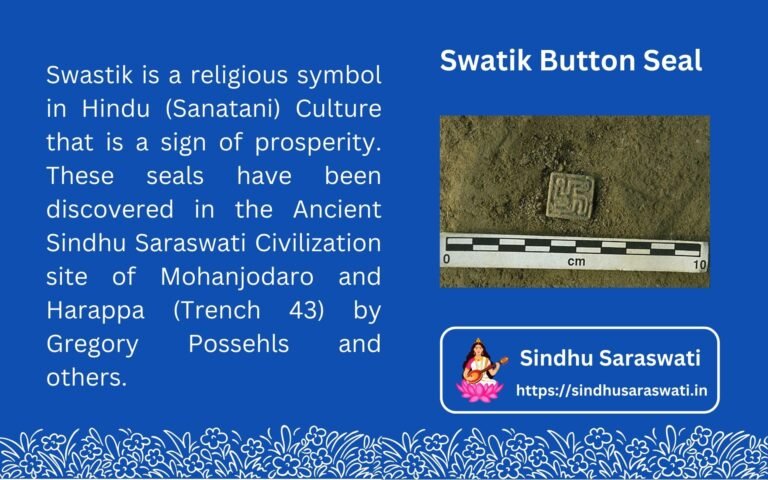
The swastika seal discovered in the Ancient Sindhu Saraswati establishes that the modern day Hinduism effectively is a continuation of old faiths and beliefs from the Sindhu Saraswati Civilization.
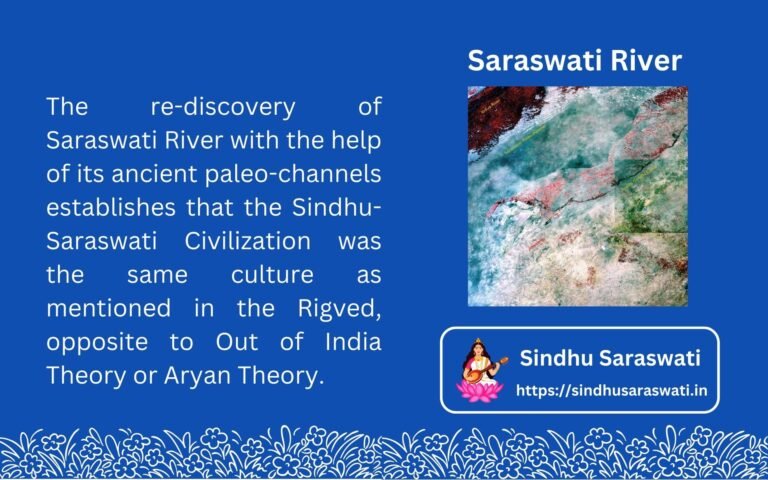
Paleochannel of the Saraswati River discovered in 21st century pushes back the Vedic era to at least 3000 BCE, canceling the OIT and Aryan theories.
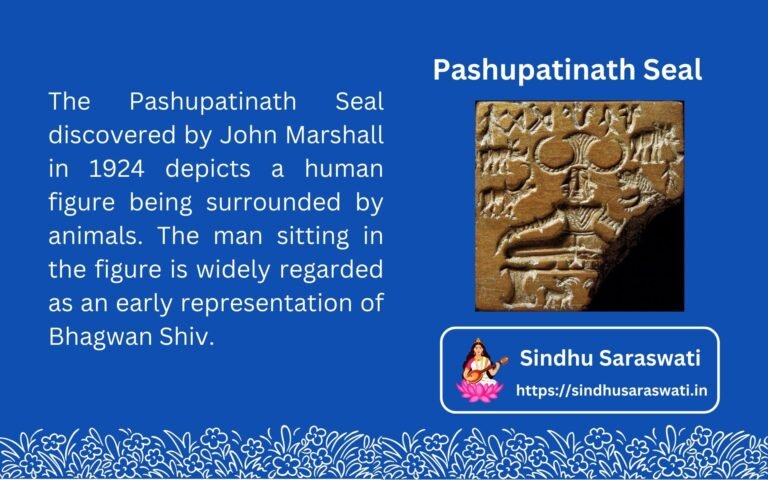
The Pashupatinath Seal belongs to the Sindhu Saraswati Civilization and was used probably as the seal of a priest, a temple seal or a worship figurine.